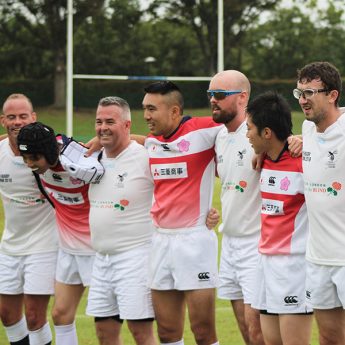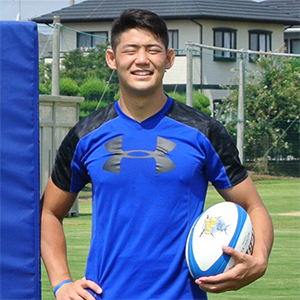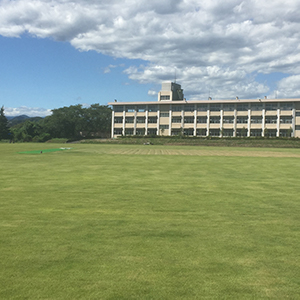An insider’s account of when Japan and England lost their World Cup bids
It is early evening on 2 December 2010; there is snow on the ground. The large reception hall at Zurich Exhibition Centre is buzzing with anticipation and anxiety, as the many hopeful delegates try to hide their sense of foreboding or excitement behind glasses of water, wine or champagne. Everyone in the waiting area will soon walk to the auditorium downstairs to hear who are the successful bidders to host the World Cup in 2018 and in 2022, to be announced by the Fédération Internationale de Football Association (FIFA) President Sepp Blatter.
Blatter carefully opens the first envelope and announces the 2018 host nation. Gasps are drowned out by cries of joy from the Russian delegation. The England bid team sits in stony, stunned silence. The second announcement, for 2022, prompts even bigger intakes of breath from the audience and louder victory shouts, this time from ecstatic members of the Qatari bid team. It is all over for Japan.
The story began for me in May 2010, when I was asked to assist the Japan 2022 Bid Committee—a slightly unusual request given that the main business of my firm, Crimson Phoenix, is M&A and corporate finance advice. An exciting one, however, considering the challenges and opportunities involved.
The decision to accept the engagement was easy. This job would take me as far afield as Johannesburg, Kuala Lumpur, London, Zurich, Milan and Madrid to talk to FIFA Executive Committee members, journalists, organisers, other bid representatives and hangers-on—anyone, in fact, who might influence public opinion and voting behaviour.
Japan’s bid had a distinctive focus on making real-time images of the football games available to all 208 FIFA member associations around the world, through the use of display and telecommunications technologies developed in Japan. For example, the games would be watched in 400 public locations around the globe by spectators gathered around flatbed screens projecting 3-D holographic images sent live from Japan. This and other ways of enjoying the matches would have enabled the World Cup to be “shared and co-hosted” by all FIFA member associations, thus bringing “208 Smiles” to the entire football family. This was truly a second-to-none aspect of Japan’s proposal.
It took a little time for media interest in Japan’s technology-led bid properly to germinate. However, once our message—that this was not some techie’s idle imagination running wild, but a thoroughly thought-out set of proposals to revolutionise how the World Cup was run—started to be projected properly and comprehensibly, a significant amount of column inches was devoted to it.
What some FIFA Executive Committee members and reporters also realised—though, sadly, not all—was the huge amount of commercial potential inherent in Japan’s “208 Smiles” concept. The games would be broadcast and watched in an entirely new way, by a far greater number of people than ever before, covering all parts of the globe from Funafuti to Timbuktu, and from Reykjavik to Wellington. This would change forever the paradigm of sponsorship and what that means commercially to FIFA.
A World Cup hosted by Japan also would have been able to spread the game of football to new markets, places and populations that it had not hitherto managed to penetrate. Giving all members the ability to share the World Cup experience through the marriage of new technologies with football, with all the attendant commercial benefits, was to be Japan’s legacy in World Cup history.’
None of this will now become a reality. Japan was eliminated in the second round of voting for 2022. Press reports suggest that, for many, the choice of Russia and Qatar was a surprise for a number of reasons.
These results, and the reasons behind them, will be discussed and attract speculation for a long time. As this is not the forum to debate the results or the reasons I simply wish Russia and Qatar the best of luck in hosting what many call the greatest sporting event in the world. They will need it.
My involvement, albeit oblique, was an experience to remember. After all, it is not every day that one gets to take part in a World Cup bid! During the campaign, I met some former stars including Ruud Gullit, Franz Beckenbauer and Sir Bobby Charlton. On that fateful evening, billionaire Chelsea owner Roman Abramovich wore a Cheshire cat grin as he shook my hand after Russia had won. The Qataris were calmer than the Russians, reflecting their confident demeanour before the announcement. The US bid team, led by former President Bill Clinton, was ashen-faced after the 2022 announcement. Sir Bobby was inconsolable, almost in tears, as he told me that this was the end of football for him. Yet, ever a gentleman, he had enough composure to commiserate with me regarding Japan’s defeat. Only when I told him that I liked the new Turkish Airlines TV commercial (featuring Sir Bobby and Manchester United stars) did he manage a smile.





